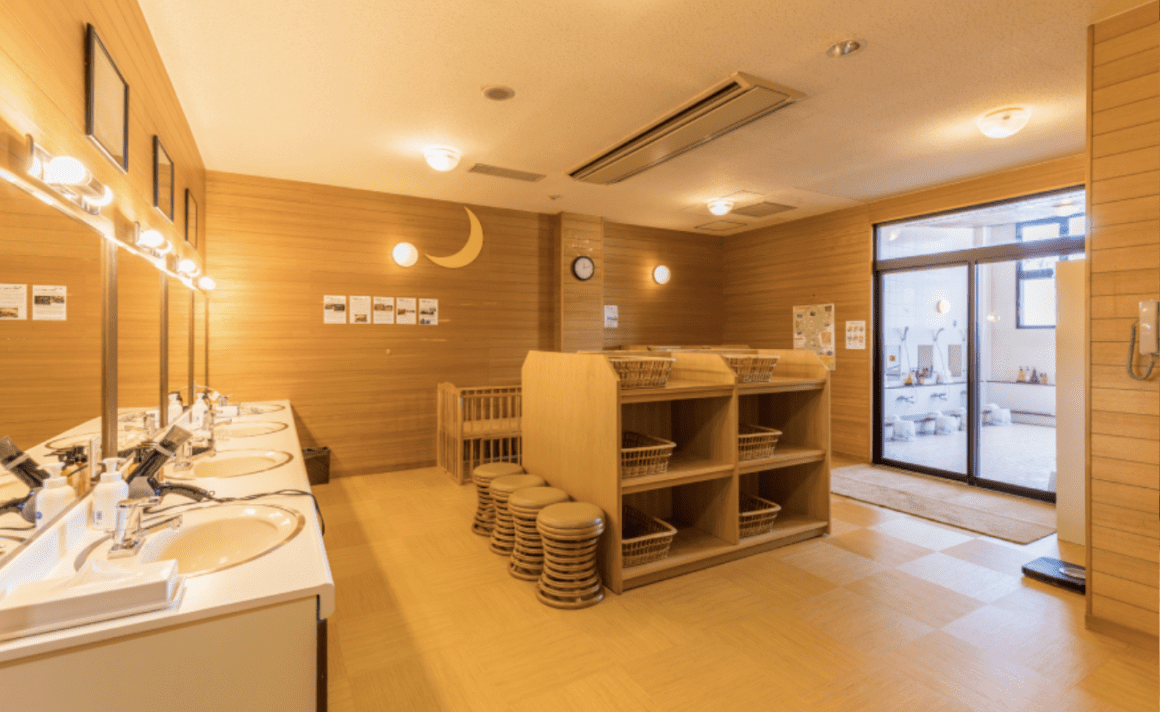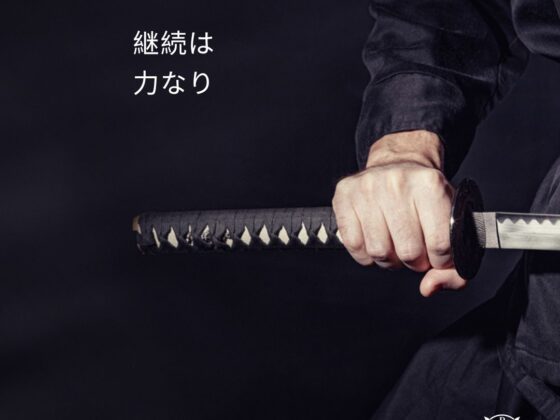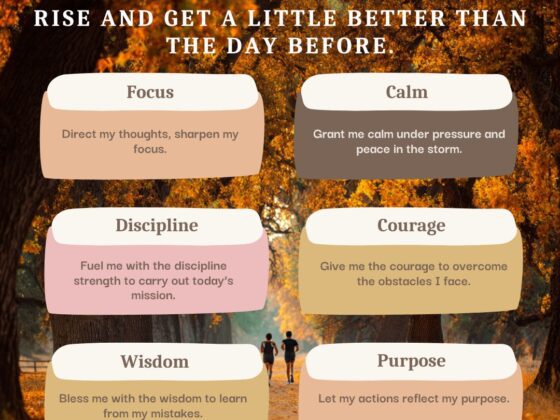“If you want success, figure out the price, then pay it. It sounds trivial and obvious, but if you unpack the idea, it has extraordinary power. The price of success is the willingness to be embarrassed by your first efforts. The price is learning what you don’t know and taking risks with your time and energy.” – Scott Adams
This will be a much longer that required introduction to communicate my main point: embarrassment is not an option if you are trying to become the best version of yourself.
I did a one-year exchange program with Nanzan University in Nagoya, Japan, years ago.
It was an exciting opportunity. I graduated with a B.S. in Information Technology and started a programming career with a small marketing research company. My college career was uneventful, and I am embarrassed to say I was looking for the fastest way to graduate and start my career.
There was a very popular Japanese course offered at the university I was attending. To put things into context, I attended college in the 1990s, and Japanese studies had gained significant popularity at some American universities, driven by several factors, including Japan’s economic success. The class was Introduction to Japanese Language and Culture. After unsuccessfully applying to take the class for three years, I finally took it in my final year in the fall semester of 1991.
College was a period of self-discovery for me. While academically, I was making my marks, it was my first introduction to concepts around building my skill stack and starting to challenge the standard education path leading to a corporate career.
Like probably every college student, I experimented with my major many times. I played with accounting for a few semesters, followed by economics, and finally landed on Management Information Systems. While not intentional, this was a rudimentary form of skill stacking in the sense that I was learning beyond what the standard college curriculum offered. This “experimentation” with my major is what led me to want to learn Japanese.
I was already interested in Japanese culture and was hooked on movies like The Seven Samurai and Yojimbo, directed by Akira Kurosawa. I even did my thesis paper on this series of films when I was obtaining my second B.A. in Japanese Studies.
Introduction to Japanese Language and Culture
This class is what changed everything for me.
It was the catalyst for what turned out to be a twenty-two-year successful career in Japan and the Asia Pacific region.
The class was ordinary, but the people and the professor were magnificent. The professor was an American who had lived for several years in Japan and returned to the United States to teach. For those of you who have living in Japan you probably knew people who participated in the various English Teaching Programs available. For those of you who have experience foreign English teachers in Japan you also know that some of them can have very colorful personalities.
My Introduction to Japanese Studies professor was one of these characters. He had endless, colorful stories of his adventures and sometimes failures in Japan. He made the experience of learning about Japan so enjoyable that anyone with a slightly adventurous soul would want to hop on the next plane and visit Japan.
Get to the Purpose of This Newsletter Already!
For this story to make sense, I must first introduce you to Japanese-style public baths and my living situation when I attended Nanzan University.
Because I was older when I attended Nanzan University, I was put in a company dorm instead of a school dorm. This had significant benefits, but those stories are better left for a future newsletter.
This was a dorm for company employees, a form of lower-cost living for single men.
It was like a dorm in the United States; the room was where you would sleep, and bathrooms and baths were shared.
A typical Japanese public bath has a foyer with sinks and lockers. The foyer is a place to secure clothes, towels, and other items. There are also sinks so you can finish with a good shave and make your hair looks good afterward.
A typical Japanese bath has a row of sitting stalls where you can wash yourself off and finish by relaxing in the community bath.


The bath at my dorm was very similar to the photos above. The only difference was that my dorm bath had a few shower stalls with curtains.
Now, to my moment of embarrassment.
I am not sure this is the same for all Japanese baths, but it appeared true at my dorm and the gyms I went to that the people do not typically head into the bathing area with a large towel to dry themselves off. The towel usually stays back in the locker room. People would typically just bring a small washing bowl, soap, washcloth, and other small items to help you in your bathing journey for the day.
My embarrassment came on a day that I had to stay home from school sick. I went to take my shower a little later in the day. I left my towel and clothes in the locker room and headed into a shower stall to take a quick shower. Lost in my thoughts, I stopped the shower, pulled back the shower curtain, and stepped out of the stall, only to be greeted by five or six cleaning ladies. Unknown to me, the ladies who clean the dorm decided it was time to clean the bath for the day.
I was embarrassed to my core. I was so embarrassed that right then and there I am sure I must have turned into a human tomato.
I was confronted with two immediate choices. I could have chosen flight, turned around and retreated to the comfort of the shower stall and its glorious and protective shower curtain. The other option was to confront and face the embarrassment head-on. I decided to face the challenge and make the long walk across the bath to the safety of the locker room.
I later learned that in Japan, it was not uncommon to have female cleaning ladies in baths and bathrooms even when other men were in them. There were other occasions when I would be standing at a urinal, and a Japanese cleaning lady would walk up to the urinal next to me to clean it.
In Japan, cleaning staff, including women, often continue cleaning public restrooms even when men occupy them. This is generally accepted in many public spaces, such as shopping malls, train stations, and office buildings. Signs or announcements are typically made to inform users that cleaning is in progress. The practice is often carried out discreetly and professionally to minimize discomfort for both the cleaning staff and the restroom users.
I learned about this cultural difference that day of ultimate embarrassment. I thought is was crazy to have women in the mens bath but what it really highlighted was some efficiency and practicality in Japanese society. The focus is on maintaining cleanliness without causing significant disruption.
I also learned the importance of overcoming embarrassment that day. To this day, the fact that I did not run back in the shower stall and instead walked “semi-confidently” with everything exposed, feels a little bit like a badge of honor.
Why Does Overcoming Embarrassment Matter?
Embarrassment is not something to run away from. Overcoming embarrassment is critical to everyone’s journey to success. Being able to overcome or not be embarrassed is critical because it helps us grow, build confidence, and improve our ability to face new challenges.
There are several reasons why overcoming personal growth matters.
Personal Growth: What would have happened to my personal journey in Japan if I had cowered to that culture shock incident in the Japanese bath that day? Instead, I embraced the moment and tried to move past it. Embracing and moving past embarrassment allows us to grow, build confidence, and create the experience necessary to move beyond the new challenges we face. It helps us become more resilient, and, just like in my case, it creates a lot of interesting stories to tell your friends and family.
Self-Confidence: Did walking out of a shower stall buck naked and exposing myself to a bunch of cleaning ladies build confidence? Sure, it did. Did it mean that I wanted to experience that exact event again? Definitely not, but it did help me learn not to sweat the little embarrassments. Overcoming moments of embarrassment helps build self-confidence, demonstrating that you can handle uncomfortable situations and still move forward. Look at these embarrassments as opportunities to overcome obstacles standing between you and success.
Fosters Courage: When you overcome embarrassment, you create the courage to take risks, make mistakes, and learn from them. This is critical to achieving success. Each time you overcome or ignore embarrassment, you build the experience necessary to succeed. The bath incident for me was my greatest example of being exposed to culture shock in Japan. Years later, after my return to Japan, I had to do many pre-sales visits to Japanese customers. My Japanese still needed to improve, so I would get a little nervous before the visits. Every time my mind would shift to feelings of embarrassment about having to speak Japanese in front of the customer, I would remind myself of the naked bath incident.
Reduces Fear of Judgement: Discipline to focus on your goals and what you need to accomplish while not letting the judgment of others impair your ability to move forward is a superpower. Not becoming embarrassed diminishes the fear of being judged by others, empowering you to be more authentic and express yourself without concern for others’ opinions. This allows you to make the right decisions in the moment without fear or worry about what others think. Just imagine the opportunities you could lose if you could not pull the decision-making trigger because of fear of embarrassment.
Improve Social Connections: By nature, I have a shy personality. During my time in Japan, I could have stayed home every day after school and work. There were daily opportunities for embarrassment in a new culture and exposure to new experiences and challenges. My shower incident was the catalyst for opening the door to unfiltered adventure and opportunity while living in Japan. I embraced the idea that embarrassing moments are often part of the human experience. Overcoming them fosters empathy and relatability, strengthening social bonds and allowing for deeper connections with others. I made many friends and connections I would not have otherwise had I considered embarrassment a barrier versus an opportunity.
By overcoming embarrassment, people can develop a greater sense of freedom and self-acceptance, allowing them to confidently pursue their goals without fear of failure or judgment.
How to Overcome Embarrassment
The ability to overcome embarrassment and use it to your advantage is a skill everyone can develop and use as a competitive advantage. It requires a shift in mindset and a few key steps. I will list some examples here and dive deeper into this subject in a future training course.
- Reframe what Embarrassment Means to You: Do not fear embarrassment. Instead, see it as part of a broader, ongoing process of self-improvement and growth rather than as a personal defeat. By viewing it this way, you reduce the power embarrassment has to hold you back and instead encourage its use as fuel for success.
- Learn from the Experience: Look at embarrassment as an opportunity to create a new experience. Embarrassing situations often teach us valuable lessons. Reflect on the problem and use it as an opportunity for personal growth. Ask yourself what you can learn or improve upon. In my shower experience, I learned a few valuable lessons: plan ahead before jumping into a situation. I just came barreling out of the show without being situationally aware. In this case, I was only a little embarrassed, but it taught me a little situational awareness. Additionally, it taught me not to sweat all the little embarrassing things. This was like the ultimate being naked in front of an audience moment for me, so if I could survive that, other things did not seem like a big deal.
- Laugh at Yourself: You have to learn to laugh at yourself. In Japan, if mispronounced just the right, my last name sounds like a word that means stupid or unintelligent. I used to intentionally mispronounce my name during introductions to set a light-hearted tone. The ability to laugh at myself always won me over with my customers. Humor can be a powerful tool in defusing the sting of embarrassment. Learning to laugh at your mistakes shows confidence and resilience, which helps you move past the moment.
By reframing embarrassment as a learning tool and using it to build confidence, you can turn it into a superpower that helps you grow and succeed.
Remember, what works for me may not work for you. The strategies listed above can vary from person to person, so it might take some experimentation to find the best combination for you.
Additionally, these are just a few ideas. I will publish future newsletters or training course materials to examine this topic in depth. Please share your personal experiences in this area. I would love to hear from you and learn from you.
The Day Warrior
How to find more content from The Day Warrior:
If you enjoyed this newsletter, please subscribe.
If you want to have a deeper discussion about this subject, please get in touch with The Day Warrior.
Follow me on X for daily short and long-form content: @thedaywarrior.
I am also on Instagram: @thedaywarrior.
My website is http:/thedaywarrior.com.









